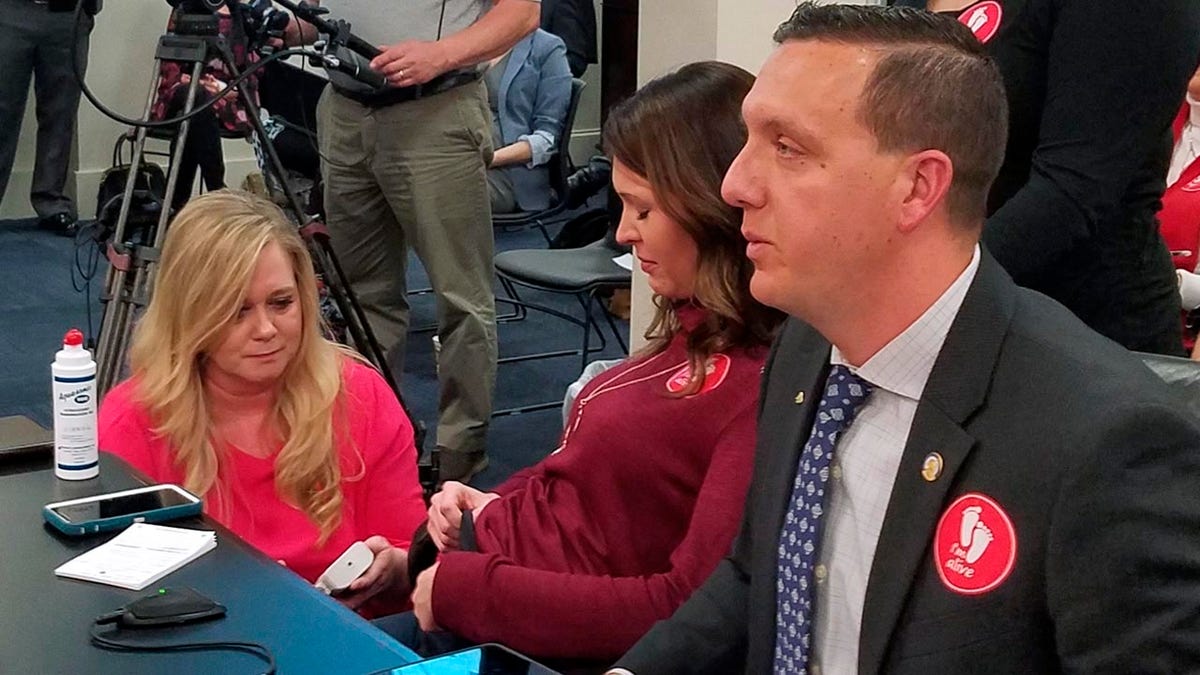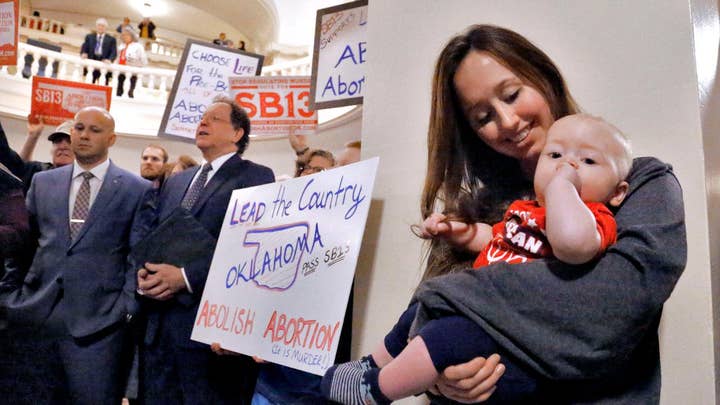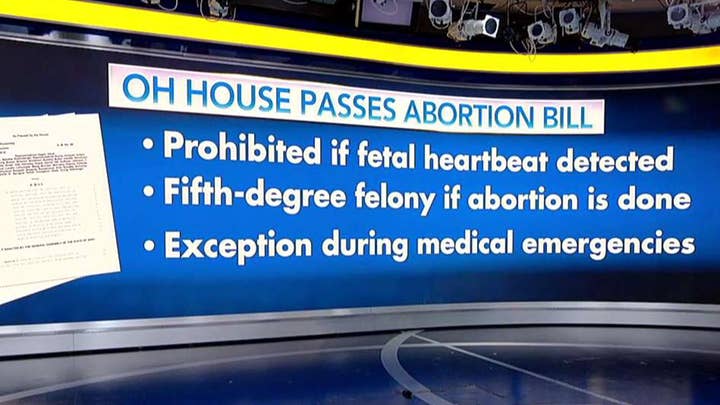Mississippi Gov. Phil Bryant ready to sign 'heartbeat' abortion bill
The new state law would prohibit an abortion after a fetal heartbeat is detected. Gov. Bryant defends the legislation on 'Fox & Friends.'
Mississippi Gov. Phil Bryant has vowed to sign a "heartbeat" abortion bill that was passed by state legislators last Wednesday. Kentucky passed a similar bill a day later. And Texas state lawmakers are also pushing to advance a similar bill in the coming weeks or months.
As both sides of the abortion debate are preparing for the possibility -- however remote -- of Roe v. Wade being overturned, at least 10 states are currently considering or have passed "heartbeat bills," which prohibit an abortion after a fetal heartbeat is detected, which can be as early as six weeks of gestation or as late as 12 weeks.
While it's unclear whether the bills will withstand court challenges -- similar proposals have been struck down by judges because of Roe v. Wade -- lawmakers are pursuing them in case the 1973 Supreme Court ruling is reversed.
In Mississippi, Bryant trumpeted state lawmakers for passing a bill he hopes will be mirrored across the country.
ABORTION SURVIVORS ON NEW LATE-TERM ABORTION BILLS: 'WHERE WERE MY RIGHTS IN THE WOMB?'
"I’ve often said I want Mississippi to be the safest place for an unborn child in America," Bryant wrote on Twitter. "We will stand for life here in the Magnolia State and hope the rest of the nation follows."
Florida, Maryland, Minnesota, Mississipi, Missouri, Ohio, South Carolina and West Virginia are among the states that have either passed "heartbeat" legislation or are hoping to do so. This comes as states like New York, New Mexico, Maryland, Rhode Island, Vermont, and Virginia, among other Democratic-leaning states, are supporting bills that allow abortion up to the moment of birth.
The bills on both sides of the issue have become politically, and emotionally, charged.
In Kentucky, a pregnant woman, April Lanham, sat as a witness in support of the bill while the audience listened to her preborn child's heartbeat via an electronic monitor.

April Lanham, center, undergoes a procedure in Frankfort, Ky., that allows the audience at a Kentucky legislative meeting to hear her unborn son's heartbeat, Thursday, Feb. 14, 2019 in Frankfort, Ky. Her appearance came shortly before a Kentucky Senate committee advanced a bill that would ban most abortions in the state once a fetal heartbeat is detected. (Tom Latek/Kentucky Today via AP)
"That child in her womb is a living human being," State Sen. Matt Castlen, a sponsor of the bill, said. "And all living human beings have a right to life."
WOMEN'S RIGHTS GROUPS SUPPORT LATE-TERM ABORTION, DESPITE OUTCRY
But critics say the bills will not hold up in court. In Arkansas, Iowa, and North Dakota, federal judges found similar bills "unconstitutional."
In Mississippi, while the "heartbeat" bill was being debated, Democratic State Sen. Derrick Simmons asked if it was worth the money to fight this bill in court, referencing the state spending $1.2 million over a 15-week abortion ban that a district judge found unconstitutional. His Republican colleague, State Sen. Michael Watson, responded: "What is a life worth?"
DEM CO-SPONSOR OF LATE-TERM ABORTION BILL APOLOGIZES, SAYS SHE DID NOT READ THE TEXT
Ohio was the first state to introduce the so-called "heartbeat bill" in 2011, and after being revived last year was vetoed by then-Gov. John Kasich late in December. The current governor, Mike DeWine, has vowed to sign the legislation that is expected to pass in March. He said he believes it will be ultimately be decided by the Supreme Court.
CLICK HERE TO GET THE FOX NEWS APP
The heartbeat bills prohibit abortion as early as six weeks. Roe v. Wade's ruling allows abortions until 24 weeks, which the justices said is the "point of viability," when the fetus can survive outside of the womb.
OB/GYN: 'ABSOLUTELY NO REASON TO KILL A BABY' IN 3RD TRIMESTER
Florida's version redefines a fetus as an "unborn human being," would make it a third-degree felony to perform an abortion after a fetal heartbeat is detected. Gov. Ron DeSantis has vowed he will sign the legislation if it passes this spring.
Anti-abortion advocates believe they have a better chance at the Supreme Court following President Trump's appointment of Justices Neil Gorsuch and Brett Kavanaugh.















































